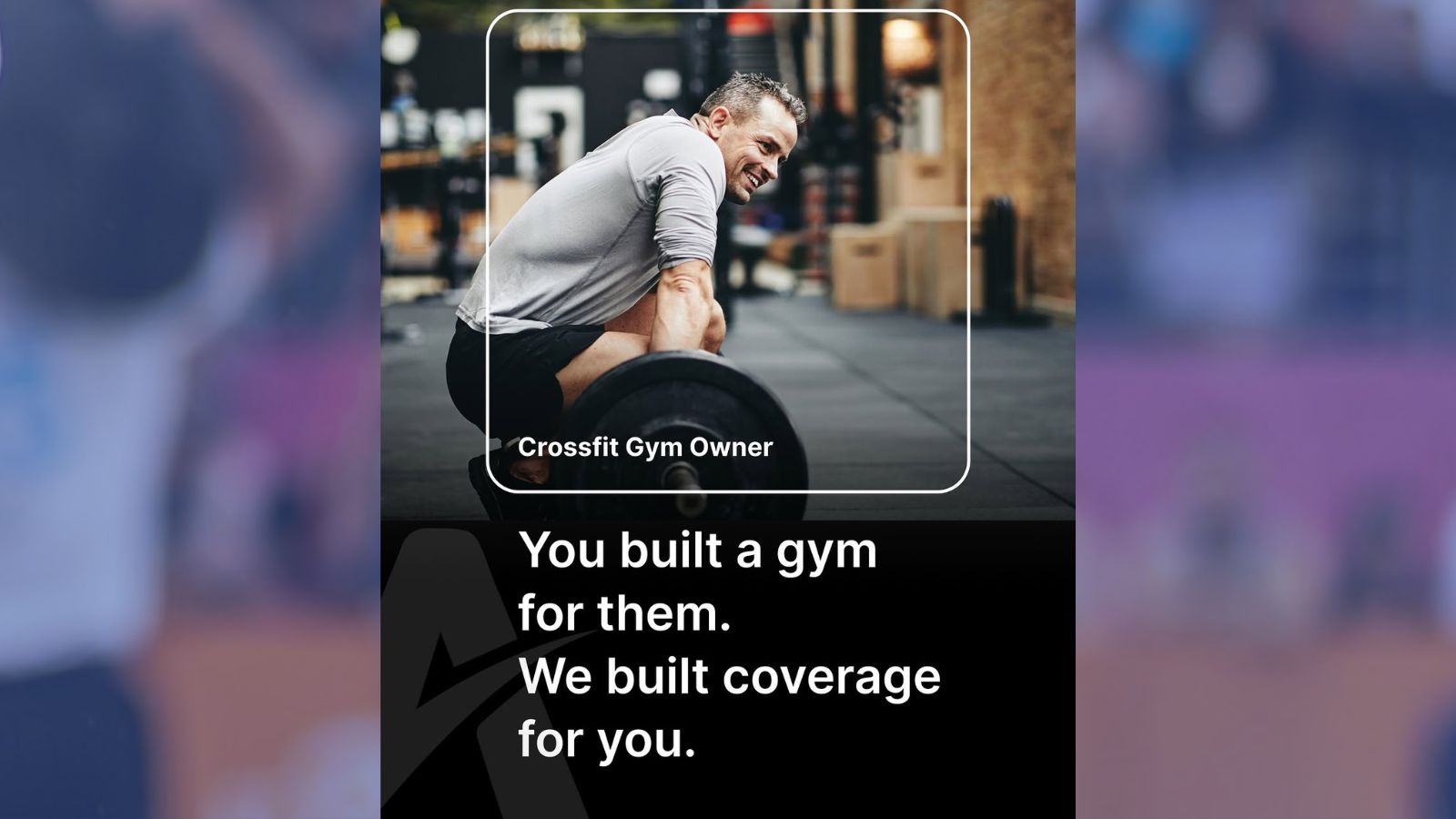From Lawsuits to Lease Traps: AGuard Founder Vaughn Vernon Talks Gym Insurance Must-Knows

You have to prepare for the unexpected when you own a gym: a twisted ankle, a failed lift, a power outage mid-WOD — the list is endless.
However, many gym owners are not prepared for disasters such as fire, theft, lawsuits, or leases filled with hidden pitfalls that can shut down their business overnight.
- And when these kinds of unpredictable events happen, having the right insurance coverage can mean the difference between closing your doors or continuing to thrive.
That’s exactly why Vaughn Vernon launched Affiliate Guard in 2007, a company that offers insurance coverage tailored to each gym owner’s needs.
Remind me: Affiliate Guard rebranded to AGuard Insurance Services in 2013. Today, their primary focus remains on CrossFit affiliates, functional fitness gyms, and Jiu-Jitsu and MMA facilities.
- How it works: When a gym owner contacts AGuard for an insurance policy, Vernon and his team explain exactly what needs to be included in their coverage. Then, they send the application to five trusted insurance carriers they work with to find the best price and coverage for each gym owner.
We caught up with Vernon to discuss the most significant insurance mistakes gym owners make, and how to avoid them.
1. Lack of Equipment Insurance
“By far the biggest pitfall is not having your equipment insured properly,” Vernon told the Morning Chalk Up.
Many policies only cover equipment at depreciated value, so if your gym burns down, your insurance payout might be much less than the replacement cost.
- “You don’t want a depreciated check to replace your equipment,” Vernon warned. “Make sure you’re covered for the replacement cost of new equipment.”
2. Inadequate Business Interruption Insurance
Business interruption insurance helps cover lost income caused by events like a fire, theft, or vandalism.
Vernon stressed the importance of carefully reviewing your lease agreement and having sufficient coverage to keep your gym open during a shutdown.
- “I have seen lease agreements where the landlord wants a certain amount of business interruption insurance going straight to them in the event the gym has to close temporarily, and then the landlord gets the insurance payout and there’s nothing left for the gym owner,” he explained.
Pro tip: Before signing a lease, Vernon suggests speaking with Matthew Becker, a gym owner, lawyer, and founder of gymlawyers.com, as “he does a damn good job keeping these landlords honest.”
3. Not Structuring 1099 Contractor Agreements Properly
If your coaches are 1099 contractors instead of W-2 employees, there are a few things to watch out for.
- Make sure you include some verbiage in your coach’s agreement stating that you are not responsible for their medical bills if they get injured at your gym, Vernon said.
- Verify that your insurance policy extends liability coverage to subcontractors. Otherwise, coaches would have to get their own lawyer to defend themselves in the event of a lawsuit.
Non-Negotiables to Reduce Your Risk
No matter your gym size or location, Vernon listed four non-negotiables for the gym owner:
- General liability: This covers slip-and-fall incidents, which are usually required by landlords, and includes no-fault medical payouts.
- Professional liability: This covers coaching-related injuries and lawsuits.
- AED on-site: Whether or not your state requires you to have an AED (automated external defibrillator) on site, Vernon said it’s essential. Not only can it save a life, but it can also protect you in case of a lawsuit.
- Background checks: If you train youth athletes, do your due diligence and get background checks on all the coaches who will interact with kids. It’s not prohibitively expensive and could save you some serious headaches down the road.
6 Common Questions from Gym Owners
1. Do I need accident medical coverage?
It depends. If you’re an MMA or Jiu-Jitsu gym, we require you to have this. But if you’re a CrossFit or functional fitness gym, it’s up to you. Since it is a no-fault coverage, it can prevent minor injuries from escalating into a costly lawsuit.
2. Does business interruption insurance cover pandemics?
No. Unfortunately, business interruption insurance doesn’t cover pandemics. If you want pandemic insurance, your policy will be very expensive and come with “massive deductibles,” Vernon said.
3. Do I need a new policy if I make facility upgrades?
Yes, if you have invested money in your facility – such as building walls, installing a bathroom, or custom flooring – these facility upgrades also need to be covered in your policy.
4. How much should I expect to pay for business insurance?
Costs vary depending on your state, member count, and coverage needs. However, Vernon estimates that for gyms with 100 to 200 members, the typical annual cost ranges from $2,000 to $3,000, assuming there are no special lease requirements.
5. What if I de-affiliate from CrossFit? Am I still covered?
If you de-affiliate and no longer require your coaches to hold a CrossFit Level 1 certification, your insurance coverage will still apply as long as your coaches have a credential from a nationally recognized organization.
6. How do I avoid overpaying for business insurance?
Find an insurance provider who knows the ins and outs of the gym business and understands exactly what you need (and don’t need). Otherwise, you might end up paying for “fluff,” which includes things you don’t need and can increase your premiums.
The Bottom Line
Business insurance might not be sexy, but it’s necessary, as it can save your gym if disaster occurs.
However, you need to do your homework, ask questions, read the fine print, and most importantly, work with someone who understands your specific needs as a gym owner.
Featured image: @affiliateguard / Instagram

